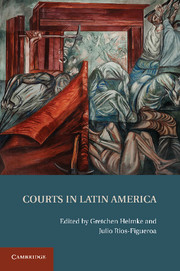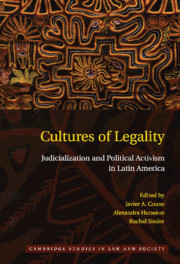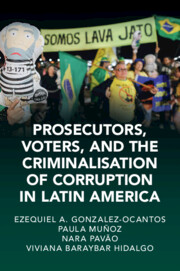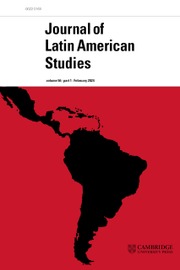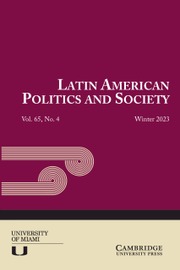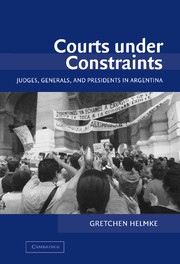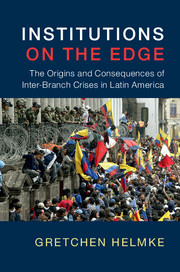Courts in Latin America
To what extent do courts in Latin America protect individual rights and limit governments? This volume answers these fundamental questions by bringing together today's leading scholars of judicial politics. Drawing on examples from Argentina, Brazil, Chile, Mexico, Colombia, Costa Rica and Bolivia, the authors demonstrate that there is widespread variation in the performance of Latin America's constitutional courts. In accounting for this variation, the contributors push forward ongoing debates about what motivates judges; whether institutions, partisan politics and public support shape inter-branch relations; and the importance of judicial attitudes and legal culture. The authors deploy a range of methods, including qualitative case studies, paired country comparisons, statistical analysis and game theory.
- Presents diverse methodologies, broad country coverage and original data
- Demonstrates the widespread variation in the performance of Latin America's constitutional courts
- Draws on examples from Argentina, Brazil, Chile, Colombia, Costa Rica and Bolivia
Product details
January 2014Paperback
9781107627550
354 pages
229 × 152 × 19 mm
0.47kg
30 b/w illus. 27 tables
Available
Table of Contents
- Introduction: courts in Latin America Gretchen Helmke and Julio Ríos-Figueroa
- 1. Institutions for constitutional justice in Latin America Julio Ríos-Figueroa
- 2. Enforcing rights and exercising an accountability function: Costa Rica's Constitutional Chamber of the Supreme Court Bruce M. Wilson
- 3. Strategic deference in the Colombian Constitutional Court, 1992–2006 Juan Carlos Rodríguez-Raga
- 4. From quietism to incipient activism: the institutional and ideological roots of rights adjudication in Chile Lisa Hilbink and Javier Couso
- 5. 'Faithful servants of the regime' - the Brazilian Constitutional Court's role under the 1988 Constitution Daniel M. Brinks
- 6. Power broker, policymaker, or rights protector? The Brazilian Supremo Tribunal Federal in transition Diana Kapiszewski
- 7. Legalist vs. interpretivist: the Supreme Court and the Democratic transition in Mexico Arianna Sánchez, Beatriz Magloni and Eric Magar
- 8. A theory of the politically independent judiciary: a comparative study of the United States and Argentina Rebecca Bill Chávez, John A. Ferejohn and Barry R. Weingast
- 9. Courts, power and rights in Argentina and Chile Druscilla Scribner
- 10. Bolivia: the rise (and fall) of judicial review Andrea Castagnola and Aníbal Pérez-Liñán
- 11. The puzzle of judicial politics in Latin America: a theory of litigation, judicial decisions and inter-branch crises Gretchen Helmke and Jeffrey K. Staton.

